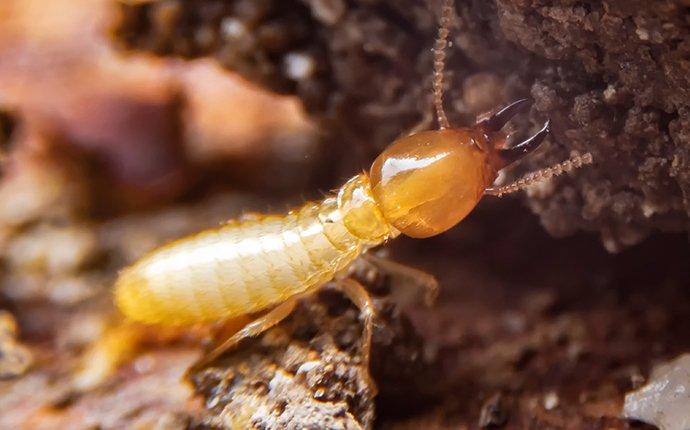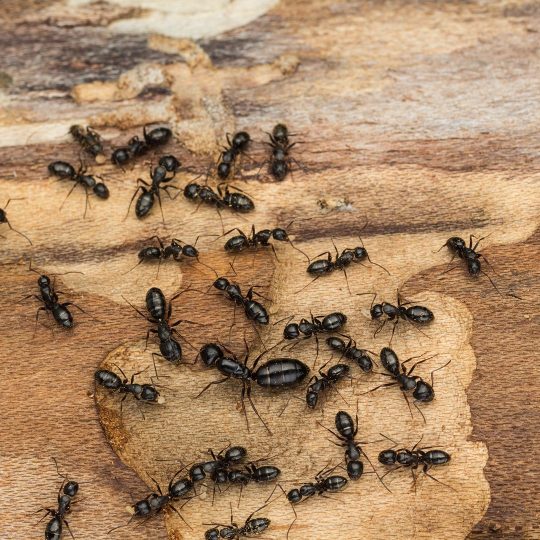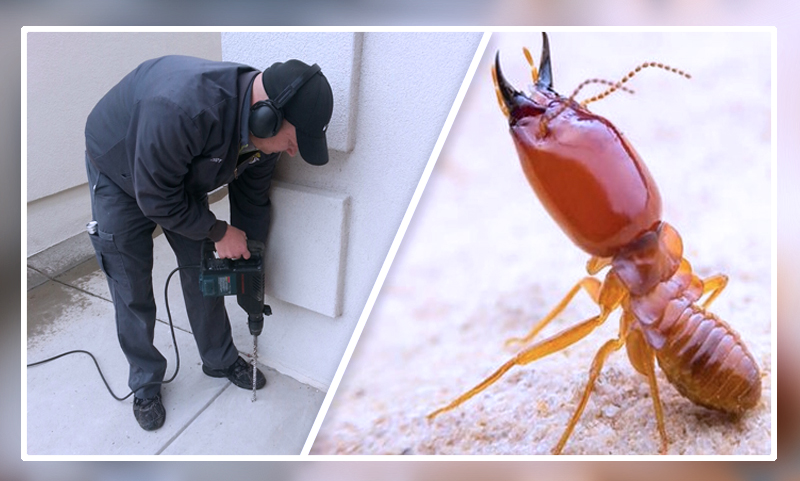Complete Ant Control: Techniques and Services to Beat Ant Issues
Complete Ant Control: Techniques and Services to Beat Ant Issues
Blog Article
Ecological Effect of Insect Control: Harmonizing Performance With Sustainability
The environmental effect of parasite control is a critical problem that requires a fragile equilibrium in between attaining effectiveness in taking care of pests and making sure sustainability of our ecological communities. From the use of hazardous chemicals that permeate into our soil and water to the unplanned consequences on non-target species, the repercussions of traditional insect control practices are far-reaching.
Hazardous Chemicals in Bug Control
The utilization of hazardous chemicals in parasite control presents substantial environmental and wellness dangers that require cautious consideration and reduction approaches. Herbicides, insecticides, and pesticides are typically made use of to eradicate pests, yet their widespread application can result in unplanned effects. These chemicals can contaminate dirt, water resources, and the air, affecting not just the targeted bugs however likewise beneficial bugs, wild animals, and people.

To resolve these threats, incorporated pest management (IPM) techniques are being promoted as an extra sustainable alternative. IPM entails a combination of techniques such as organic control, environment control, and the targeted usage of chemicals as a last hotel (ant control stokesdale nc). By embracing an all natural strategy to pest control, we can decrease the ecological and health impacts associated with harmful chemicals while effectively handling pest populaces
Effect on Non-Target Species
Thinking about the unplanned consequences of parasite control methods, the influence on non-target types is an essential element that needs extensive analysis. While bug control measures intend to target particular pests, various other microorganisms in the ecosystem might be inadvertently affected. Non-target types, consisting of advantageous insects, birds, creatures, and even plants, can suffer direct or indirect damage from pesticide applications or organic control approaches.
Chemicals can have deadly or sub-lethal impacts on non-target varieties. Pesticides designed to fight a particular insect pest may hurt pollinators like bees or natural predators such as ladybugs. In addition, chemical deposits can accumulate in the atmosphere, influencing non-target microorganisms with time. Likewise, organic control representatives, if not species-specific, can posture threats to unintentional targets, interrupting the environmental balance.
To minimize the impact on non-target varieties, integrated parasite monitoring (IPM) methods that emphasize an alternative technique to pest control are advised. These methods focus on making use of environmentally pleasant methods, lessening injury to useful organisms while properly handling pest populations. Carrying out complete risk analyses and monitoring the outcomes navigate to this website of parasite control initiatives are crucial action in guarding non-target varieties and advertising overall ecological community health and wellness.
Soil and Water Contamination
Unintentional ecological effects of parasite control techniques extend beyond affecting non-target varieties, with significant implications for dirt and water contamination. Chemicals, herbicides, and chemical fertilizers made use of in insect control can seep right into the dirt and pollute groundwater, posturing a danger to both aquatic and earthbound environments. Dirt contamination can disrupt the balance of microbes essential for vitamins and mineral biking and plant growth, bring about lowered dirt fertility and performance. Furthermore, these chemicals can continue in the atmosphere for prolonged periods, building up in the dirt and potentially getting in the food chain.
Water contamination is one more critical problem linked with parasite control methods. To mitigate soil and water contamination from bug control tasks, integrated insect management techniques that focus on sustainability and minimize chemical inputs are important.
Air Contamination From Pesticide Use
Direct exposure to air-borne chemicals during agricultural applications positions a significant concern for air contamination control actions. Additionally, pesticide drift, where pesticides are brought by the wind to unplanned areas, can lead to the contamination of nearby ecological communities and water bodies.

Approaches for Sustainable Pest Control
In the realm of farming methods, carrying out lasting bug control methods is paramount for keeping eco-friendly equilibrium and guarding plant returns. Lasting pest control emphasizes the use of eco-friendly methods to handle insect populaces properly while decreasing harm to non-target microorganisms and ecosystems. Integrated Insect Monitoring (IPM) is a widely adopted technique that combines organic, social, physical, and chemical control techniques to achieve long-term bug monitoring services.
One trick approach in lasting bug control is promoting biodiversity within agroecosystems. By boosting natural adversaries of insects, such as parasitoids and predators, farmers can decrease the need for artificial chemicals. Crop rotation and diversification are also efficient techniques to interrupt pest life cycles and develop less desirable problems for pests to thrive. In addition, utilizing pest-resistant crop varieties and utilizing techniques like catch cropping can help in reducing bug pressure without depending heavily on chemical treatments. Inevitably, by integrating these sustainable parasite control approaches, farmers can achieve a balance between pest monitoring performance and environmental stewardship.
Conclusion
To conclude, the ecological effect of insect control methods must be thoroughly taken into consideration to stabilize efficiency with sustainability. Hazardous chemicals made use of in parasite control can lead to soil and water contamination, air pollution, and harm non-target varieties - ant control services. It is essential to carry out sustainable bug control techniques to minimize these negative results on the setting and promote a healthier community for future generations
By adopting an all natural method to pest control, we can decrease the environmental and health effects associated with hazardous chemicals while efficiently taking care of pest populaces.

To minimize the air pollution created by chemical use, it is important to embrace incorporated pest administration strategies that focus on the use of non-chemical parasite control techniques, such as plant turning, natural predators, and resistant plant varieties. Lasting insect control highlights the usage of eco friendly techniques to manage pest populations efficiently while reducing injury to non-target organisms and environments. Integrated Pest Administration (IPM) is a widely taken on approach that incorporates biological, cultural, physical, and chemical control approaches to attain long-lasting pest management services.
Report this page